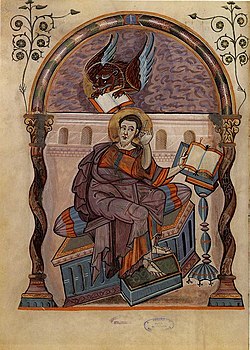| Pronunciation | Serbo-Croatian: [mâːrko] |
|---|---|
| Gender | Male |
| Origin | |
| Word/name | Serbian |
| Region of origin | Serbia |
| Other names | |
| Related names |
|

Marko is a masculine given name, a cognate of Mark. The male name Marko is a Roman personal name that comes from the Latin word "Marti-co-s" which is a derivative of Mars, the Roman god of war. [1]
Contents
In Croatia, the name Marko was the second most common masculine given name in the decades between 1980 and 1999, and third most common 2000–2011. [2]